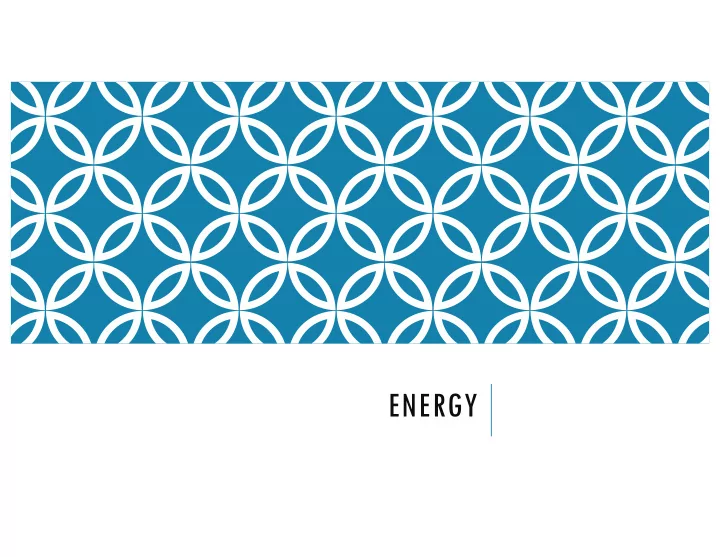

ENERGY
COAL Pros- Cons- § Cheap § Emits emissions § Abundant § Non-reusable § A big industry § Major source of sulfur-dioxide § Convertable § Dangerous § Transportation is expensive
Overview: Solar power is an SOLAR investment that could significantly help out on the input of energy one consumes, also has zero emissions to hurt the environment. The power of solar What might stop you from solar power § “Pay for power not panels” § 3.5x more energy than windmill § “Solar incentives won’t work and they § Available through out the day are not economically feasible” - § Zero impact on the environment Maloney § One solar cells could cost up to $1,000 § Renewable and some households may require more § New opportunities than one solar cell § Fossil fuels are currently cheaper
NUCLEAR Pros- Cons- § Expensive/long construction § Low CO2 § High risk accidents § No research for procedure § Unknown risks § Large power capacity § Uranium- finite, expensive § Available at all times § Research for waste § 1 uranium fuel pellet = § 17,00 cubic feet natural gas § 1,780 pounds coal § 149 gallons oil
WIND § Disagreements: § But… § Fluctuating source of energy that cannot § You can have multiple sources of energy keep up with demand § Only a one time cost § They are expensive § Can build barriers to block noise § They are noisy- they can generate that § Wind turbines only kill 10-40 thousand same amount of noise as a car traveling birds (American Bird Conservancy) at 70mph § Powerlines kill 130 million birds § Kills birds § Cats kill millions of birds § Pesticides kill 70 million
HYDROPOWER Pros- Cons- • A renewable resource • Dams are expensive • It is reliable and stable • Hurts ecosystems • A domestic source of energy • Not completely developed • Low maintenance costs • Negative impacts at a time of drought • There isn’t any waste disposal • Water supply and flood control
OIL Pros- Cons- § Burning oil releases nitrogen oxides, § Abundance mercury compounds, carbon dioxide, etc. § Common in heating of American homes, § Oil wells and oil collection produce causing difficulty in transferring to a methane different system § Non-renewable resource § Easy to transport and use § High heating value (used to heat lots of homes) § Refineries release contaminated wastewater (can contain pollutants into streams, water, etc.) § Produce wastewater sludge
ETHANOL Pros- Cons- § Greenhouse gas reduction (18% to 29% § Increases corn costs less GHG per vehicle mile) § 50% less efficient that petroleum as a § Biodegradeable fuel § Gives Minnesota’s farmers jobs § Difficult to ship § Few changes needed to implement § Soil degradation widespread use § Less mpg
NATURAL GAS Pros- Cons- § 90% of natural gas wells can be § Millions of gallons of chemical water accessed § 2% chemicals (cleaning supplies) § Natural Gas has less emissions than oil § Seep into soil and groundwater or coal § Long fissures may reach water supply § 17,600 jobs in NY alone (drinking chemicals) § 125 million dollars in tax revenue
SMARTGRID TECHNOLOGY Pros- § Enhanced cyber security § Able to have multiple sources of energy Cons- on the grid § Expensive to update § Create new opportunities for companies § Requires the reengineering of the electricity service industry § Privacy concerns § Concerns of fair and equal availability of electricity
CARBON TAX Pros- • Lessen the production of Carbon • Encourage the use of more efficient methods for the environment • Increase revenue • Repair damages caused by weather disturbances and pollution to the environment Cons- • Production may shift to countries with less or no carbon tax • Cost of administrating the tax may be expensive • May encourage businesses to produce carbon into the air secretly
Recommend
More recommend